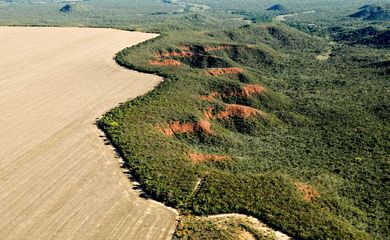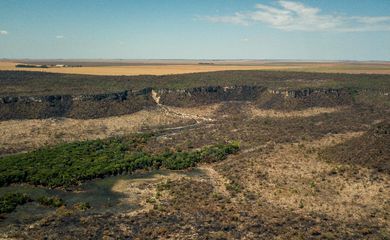More than one mi hectares to be protected in Brazilian Caatinga

Brazil's Ministry of Environment and Climate Change has announced the selection of 12 priority projects for establishing federal conservation units in the Caatinga biome. These projects, scheduled for implementation by 2026, will expand protected areas by over one million hectares in the states of Piauí, Rio Grande do Norte, and Ceará.

"Scientific studies indicate that areas once considered semi-arid are now becoming arid. This is a direct consequence of climate change. If we degrade the Caatinga, we will only worsen the problem,” warned Environment Minister Marina Silva.
The announcement was made in Petrolina, Pernambuco, this week during the launch of the campaign "Land, Forest, Water—National Movement to Combat Desertification and Drought."
The initiatives are part of the Climate Mission for the Caatinga, which brings together federal and local governments, along with Ibrahim Thiaw, the executive secretary of the United Nations Convention to Combat Desertification. The mission aims to address the effects of climate change in the Caatinga, a biome that covers 12 percent of the country's territory.
Biodiversity
According to data from the Ministry of Environment and Climate Change, desertification affects 13 percent of Brazil's semi-arid region. In these areas, human activity and climatic variations have caused a complete loss of biodiversity, impaired the ability to provide ecosystem services, and diminished the soil's productive capacity for food security.
Located entirely within Brazil's semi-arid region, the Caatinga is home to a unique biodiversity, including many endemic species found nowhere else. These characteristics, combined with the fact that 60 percent of its territory is inhabited, make the Caatinga's native vegetation particularly vulnerable to climate change, according to the United Nations Intergovernmental Panel on Climate Change.
Since 2015, Brazil has had a National Policy to Combat Desertification and Mitigate the Effects of Drought. However, deforestation in the Caatinga has increased in recent years, according to Mapbiomas' Annual Deforestation Report. In 2023, over one-fifth of deforestation alerts across Brazil were in this biome.
A total of 201,687 hectares of Caatinga were deforested, representing a 43.3 percent increase compared to 2022. The states of Bahia, Ceará, and Rio Grande do Norte saw the highest increases in deforestation alerts, with 87 percent of municipalities in the biome registering at least one deforestation event.
Projects
During the Caatinga Mission meeting in Pernambuco, the Conecta Caatinga Project was announced to promote integrated landscape management in the biome. This initiative aims to restore native vegetation and water bodies, foster the development of a low-carbon socio-economy, and connect vegetation between protected areas. The project will receive an investment of BRL 30.2 million from the Global Environment Facility (GEF).
The Arca Project: Protected Areas of the Caatinga is another initiative aimed at preserving the biome by expanding and consolidating the National System of Nature Conservation Units (SNUC). This project involves local communities in developing management plans for preservation areas in Bahia, Pernambuco, and Piauí, the states most affected by deforestation last year. The Global Biodiversity Framework Fund has already approved investments worth BRL 50 million for this initiative.
The Desertification and Drought Researchers Network was established to support the implementation of a national public policy. This network will gather key scientific evidence to aid managers in making decisions to address the climate emergency.



